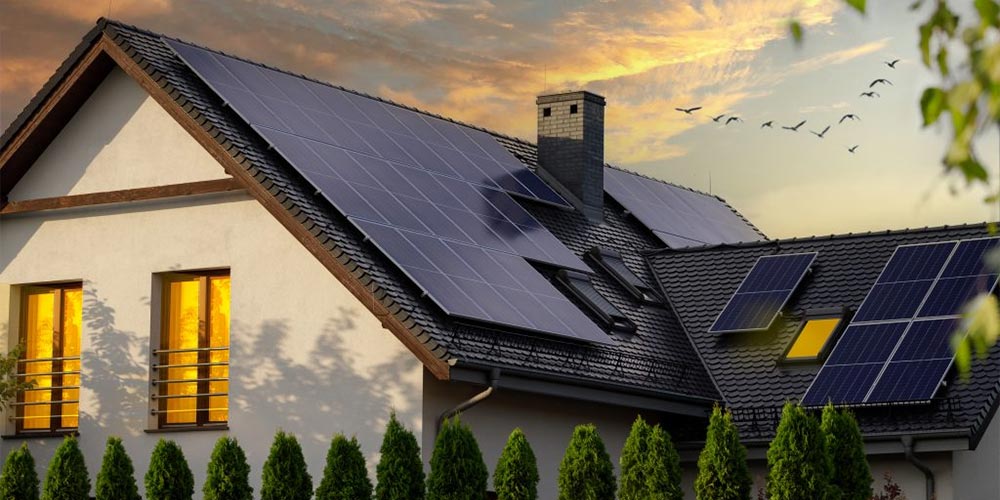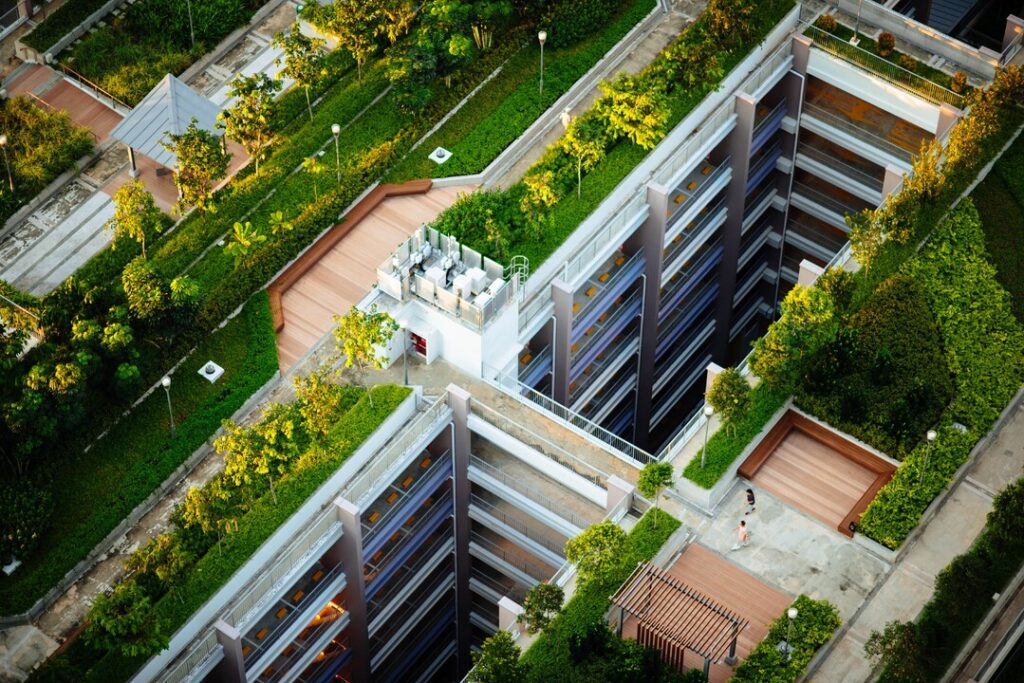
Boost Your Home’s Sustainability with Eco-friendly Renovations
Transform Your Space With Green Home Solutions
Home renovation is more than just a reinvigoration of aesthetics; it can be an opportunity to enhance your environmental footprint by integrating eco-conscious building materials. Traditional homes, particularly those over 15 or 20 years old, tend to be energy inefficient due to outdated construction practices. Fortunately, there’s a wealth of environmentally friendly construction options to transform your home into a sustainable haven.

Window and Door Replacement for Energy Efficiency
The typical energy loss in homes is usually traced to old windows and doors. Simple replacements can significantly enhance your home’s insulation, as modern products offer superior thermal performance. Apart from reducing your energy bills, this will also contribute to a warmer and more comfortable living environment, especially for those residing in regions with a harsh climate.
Benefits of Eco-Conscious Building Materials
Selecting the right materials for your renovation can have a profound impact on your home’s overall sustainability. The benefits of green materials go beyond simple energy savings; they also incorporate health benefits and reduced maintenance costs. For instance, bamboo, a rapidly renewable resource, is not only durable and attractive; it also adds value to your property. Ideal for families with children, these materials reduce exposure to harmful toxins typically found in traditional construction supplies.
- Bamboo: Fast-growing, durable, and renewable.
- Recycled Steel: Saves energy and reduces waste in landfills.
- Plant-based Polyurethane Rigid Foam: Superior insulation and eco-friendly.

Invest in Long-Term Sustainability
Choosing to renovate your home with environmentally friendly construction practices is a wise investment. For property owners planning to sell or rent, green home solutions enhance the home’s value and appeal to the increasing pool of eco-conscious buyers and tenants in the market. For pensioners, upgrading to sustainable Canadian homes can result in reduced utility costs, lower maintenance, and enhanced comfort. Indeed, this demonstrates that green renovation promises both financial and environmental dividends in the long run.
Opt for Solar Energy Solutions
Selecting a renewable energy source for your home is a fantastic way to significantly reduce reliance on fossil fuels. Solar energy solutions are versatile and flexible, catering to different energy demands. This clean and inexhaustible source of power provides many environmental and economic benefits. In addition, government incentives and decreasing installation costs have made solar power systems more accessible than ever before.
Water-Saving Fixtures for Bathroom and Kitchen Upgrades
Water efficiency is another crucial aspect of a green home renovation. By installing water-saving fixtures such as low-flow showerheads, faucet aerators, and dual-flush toilets, considerable water and energy savings can be attained over time. These fixtures, while being cost-effective, also contribute to water conservation, thereby promoting sustainable living.
| Fixture | Benefit |
|---|---|
| Low-flow Showerheads | Save up to 40% of water usage. |
| Faucet Aerators | Reduce water flow thereby conserving water. |
| Dual-flush Toilets | Offer a choice between partial and full flushes, promoting water conservation. |

Ensure Optimum Insulation
Effective insulation is one of the keys to energy efficiency in homes. Older residences, in particular, often have inadequate insulation, leading to high energy consumption for heating or cooling. By increasing the thickness or upgrading the insulation material in your walls, ceilings and floors, you can significantly cut down energy usage and consequently reduce your energy bills.
Choose Energy-Star Rated Appliances
Using energy-efficient appliances can contribute substantially to reducing your home’s energy consumption. The Energy Star rating is a universally recognised and trusted label that clearly signifies the energy efficiency of appliances, therefore, assisting consumers in making informed decisions. Consequently, replacing your old appliances with Energy Star-rated ones can result in considerable energy and cost savings in the long run.
Implement Smart and Automated Systems
The next step to further reducing your home’s impact on the environment and ensuring a sustainable future is extending your eco-friendly renovations to include smart and automated systems. Smart automation is an excellent way to cut down on energy use and, at the same time, improve your overall quality of life.
Smart thermostats, for instance, are a perfect example of such systems. They help to maintain temperature balance in the house, reducing the unnecessary heating or cooling when no one is at home or during different parts of the day. Similarly, automated lighting systems can also cut down on energy consumption by ensuring lights are only in use when needed. Other smart appliances that you can integrate into your home can include energy-efficient washing machines, refrigerators, and dishwashers. These devices not only consume less energy but also have features like delay start and off-peak power use, which can bring down your utility bills.
To enhance the sustainability of your home further, consider integrating a smart irrigation system for your garden. This automated system can perform watering duties based on weather forecasts and soil moisture levels, ensuring no wastage of water and thus preserving this essential natural resource.
Here is a quick list of recommended smart systems:
- Smart Thermostats: For efficient heating and cooling management.
- Automated Lighting Systems: Helps in energy conservation by ensuring lights are used only when necessary.
- Smart Appliances: Consumes less energy and offers smart features like delay start and off-peak power use.
- Smart Irrigation Systems: Automates garden watering schedules, preserving water resources.
In conclusion, making an eco-friendly renovation doesn’t require full-scale construction. Instead, by making strategic choices in energy-efficient appliances, materials, and systems, homeowners can reduce their carbon footprint while also saving money on utility costs. Here’s to a greener future one home at a time!
